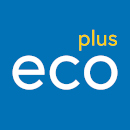
Toolmaking
Toolmaking represents a crucial interface in the life cycle of a series-produced plastic product: A prototype becomes a mold that represents the template for the manufacture of large quantities of a series product. The skills in plastics technology are supplemented here by skills in metalworking in order to be able to provide the customer with an optimal product.
The Plastics Cluster pursued the vision early on to network this important link in the value chain more closely with the overall structure of the industry and to make toolmaking know-how usable for the success of a project. In this way, the traditionally structured trades, which have long been anchored in the regions, gain access to state-of-the-art innovations in order to be able to keep up with increasingly tough international competition.
Measures: In several cooperation projects, toolmaking was involved in the development of a component at an early stage. To do this, new methods of cooperation had to be developed and simulation tools put to use. Due to the renewed attention to regional value chains in the face of the pandemic and the war in Ukraine, mold and toolmaking plays a special role. Especially in this situation, the competitive situation of medium-sized companies can be improved through cross-company cooperation.
A number of building blocks have already been developed for this:
- In the “AdvancedPartSim” project, the cooperation between toolmaking specialists and plastic processing companies was completely redefined and the previous customer-supplier relationship was transformed into a development partnership.
- In a cooperation project involving the company Multiplast, an injection molding tool for a fitting made of glass fiber reinforced polyamide was developed.
- In the “Caracoat” project, organosilane-based coatings were implemented that improve the demolding behavior of molds and tested in rubber injection molding.
- In 2020, RWTH Aachen was commissioned with a study that surveyed the structure and performance of the Austrian tool and die industry.
The network of the Plastics Cluster in the field of mold and toolmaking includes research institutions from Austria and Germany (Montanuniversität Leoben, Johannes Kepler University Linz, RWTH Aachen University) as well as a large number of users and customers of the toolmakers.
However, the challenges that toolmaking has to overcome in the current situation are also diverse: Companies have to keep up with the increasing complexity of components and associated tools while at the same time meeting the demand for shorter lead times, greater flexibility and cost reduction. In order to meet these objectives, the industry must deal with both increasing the degree of automation using digital tools and with the possibilities of additive manufacturing.
Examples:

